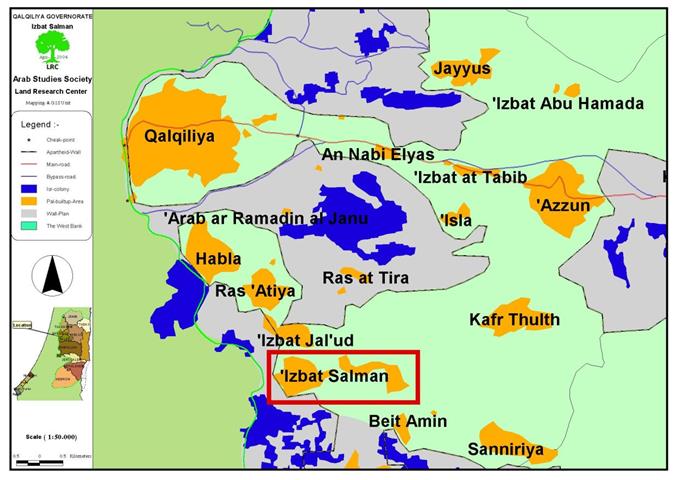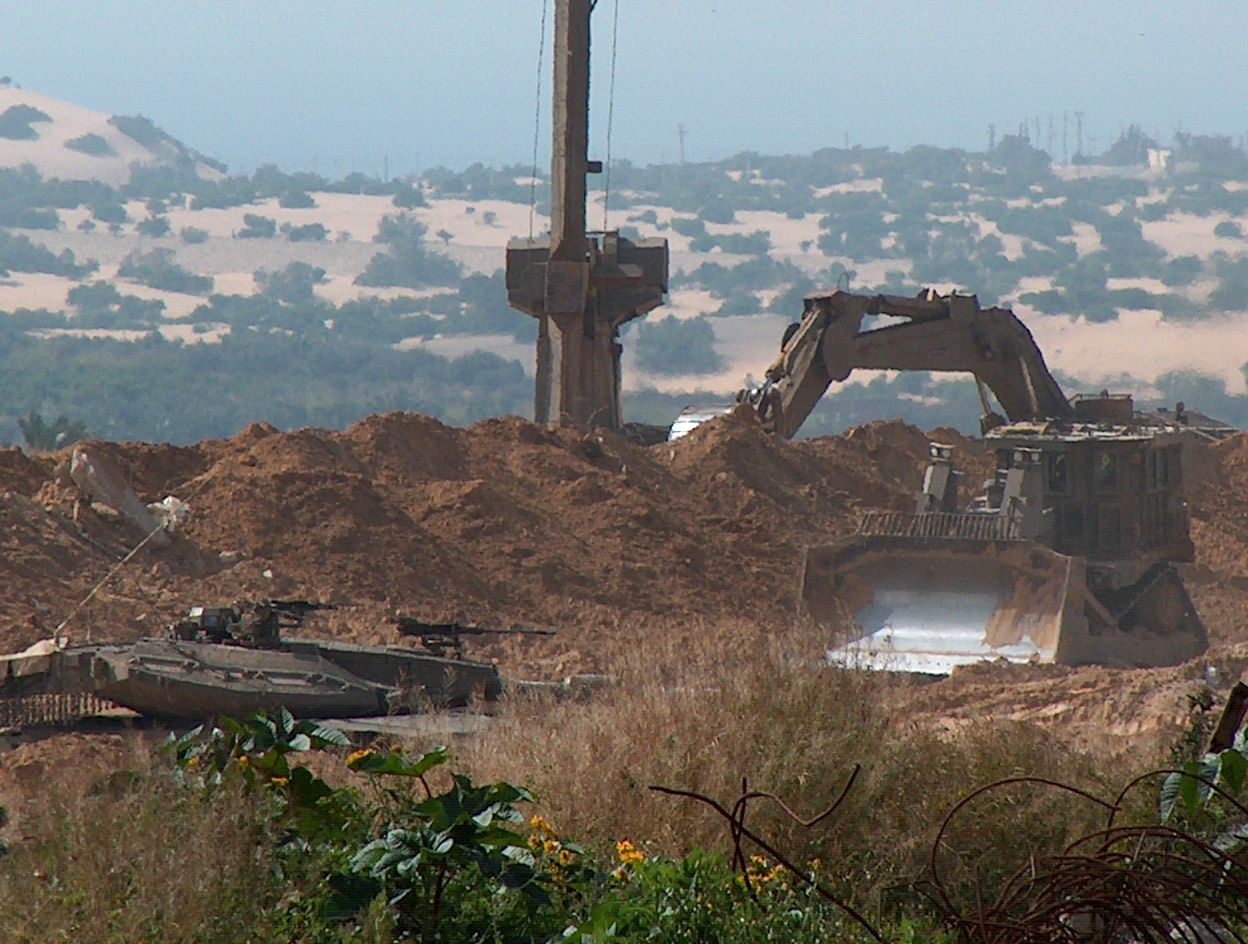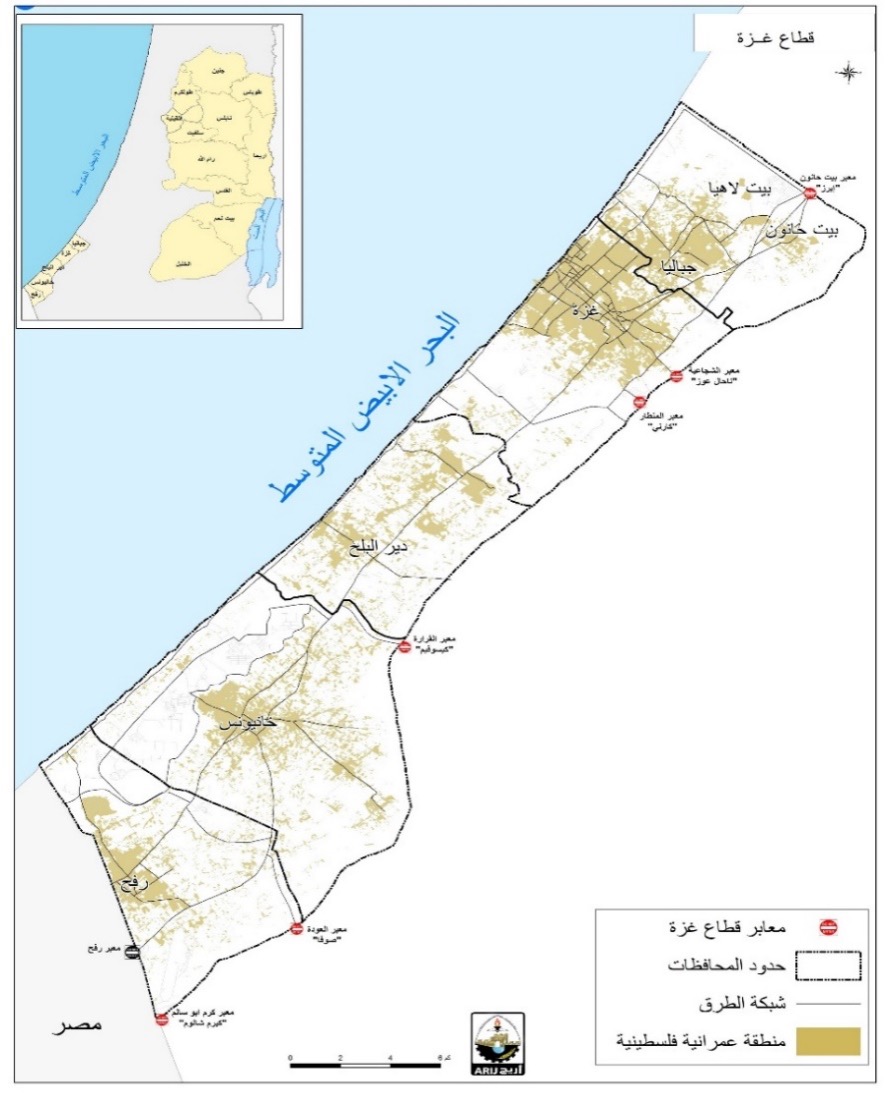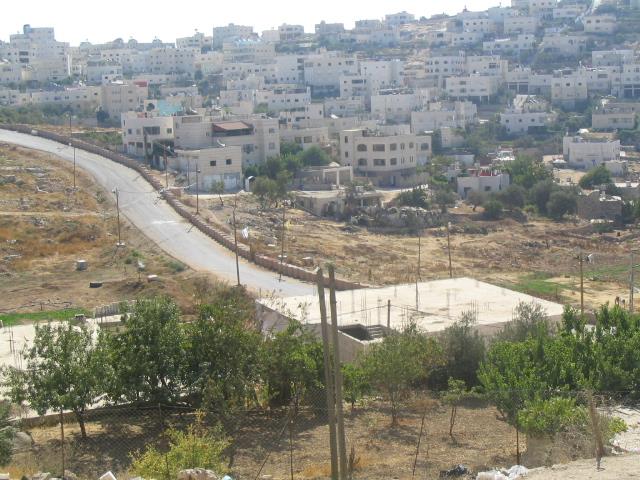Location and Population:-
The village of 'Izbat Salman is located 7 kilometers to the south of the city of Qalqiliya. Its population, according to the 2002 estimates, is about 1,000 most of who has origins in the nearby village of Kufr Thuluth. The majority of the population works in agriculture as their only source of income, especially after losing their work inside of Israel due to the Israeli policy of closure and isolation.
Surface Area
The total surface area of the village of 'Izbat Salman is 5,000 dunums distributed as follows:
-
200 dunums reserved for house construction.
-
250 dunums reserved for Green Houses.
-
600 dunums in which Romanian olive and citrus trees are planted.
-
50 dunums used as roads.
-
300 dunums of fertile lands.
-
3,600 dunums isolated behind the Israeli Racist Isolation Wall.
There are two wells in the village that cover the agricultural as well as the drinking needs of the village. The wells are:
-
A well owned by Mr. Ali Hasan Salman and his partners. It is located in the east of the village and produces about 120 cubic meters per hour which allows most of the population of the village, as well as the residents of the nearby Jaloud village, to use it for their own purposes.
-
A well owned by Mr. Ibraheem Abu Zir and his partners. Its production capacity is about 60 cubic meters per hour and serves the residents of the western part of the village as well as the residents of the nearby village of Ras Attiya.
Israeli Violations in the Village:
Ever since the Israeli occupation of the West Bank in 1967 the village of 'Izbat Salman has been subjected to numerous Israeli racist violations. Examples include:
-
The establishment of a settlement called Sha'are Tikva in 1971 located in the eastern part of the village.
-
The confiscation of Palestinian lands in the southern part of the village. These lands were later used for the establishment of the Oranit settlement. The total area of the confiscated lands used for the establishment of the two settlements reached about 700 dunums.
-
The confiscation of 25 dunums on the mountain of Al Zaqoor located to the west of the village in 1981. Atop of these confiscated dunums the settlement of Ya'arit was established in the same year. This settlement was further expanded in 1983 when an additional 170 dunums were confiscated and added to its lands.
-
The continuous polluting of the environment surrounding the village as the above-mentioned settlements regularly dumps their waste in Palestinian lands. Moreover, Israeli occupation forces have uprooted a large number of citrus and olive trees to allow for further colonial expansion as well as preventing the Palestinian farmers from reaching their lands to plow and plant.
-
The erection of the Israeli Segregation wall on the lands of the village from the southern and western directions in 2002. This has led to a marked increase of the difficulty of accessing about 3,600 dunums located behind the Wall as well as the isolation of the village away from the nearby Palestinian communities.
Pollution of the lands
The latest violation took place on July 20th, 2004 when Israeli settlers placed their wastewater pipes originating from the settlement of Oranit in lands belonging to the residents of the village. This action led to the pollution of more than 450 dunums and the spoilage of its agricultural produce rendering it unsuitable for human consumption. Moreover, the wastewater has caused the contamination of Mr. Salman's well which is used by most of the villagers for drinking and agricultural purpose. According to the Palestinian Ministry of Health, a large quantity of harmful bacteria was found in the well causing the Ministry to declare the water of the well as hazardous for the human health. As such, the residents of the village were obliged to ask for water from nearby villages while the Ministry of Health tried to solve the problem through adding chlorine into the well to reduce its bacterial content. See Photo 1
The contaminated well of Abu Salman under rehabilitation, Photo courtesy of LRC
In an interview with the Land Research Center's field researcher, farmer Mohammad Abdullah Salman of 'Izbat Salman village indicated that the stream of wastewater into his lands has caused the complete devastation of his crops which 25 individuals were waiting for its financial yield to live off of it. Finally, it is wroth mentioning that the residents of the village have called for help from a number of local and international humanitarian organizations yet to no avail. See Photo 2
Olive trees contaminated by sewage, Photo courtesy of LRC.
Prepared by
The Land Research Center
LRC















